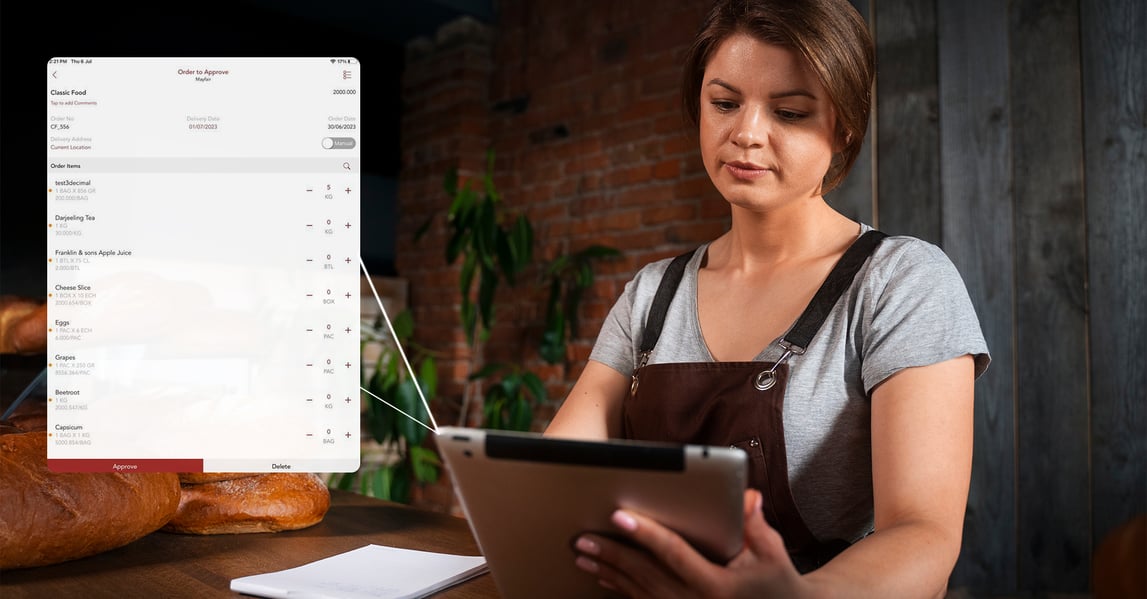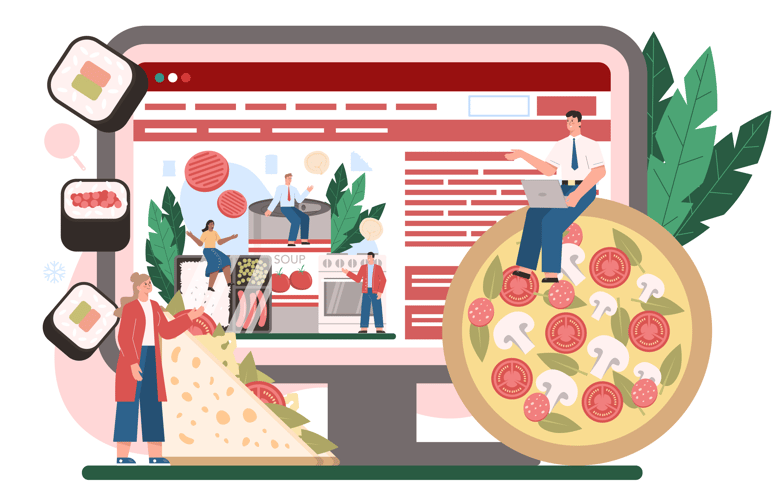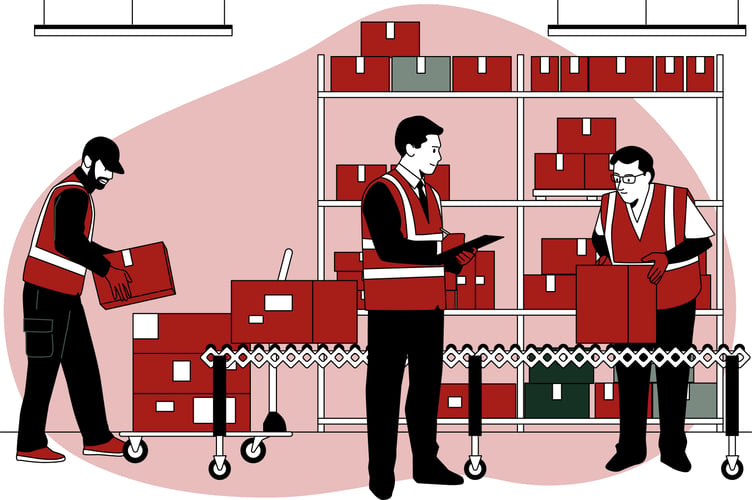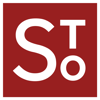
Having too much or falling short of ingredients at rush hour is every restaurant’s biggest nightmare!
In the fast-paced world of restaurant management, where every ingredient counts and every penny saved makes a difference, having the right tools at your disposal can make all the difference. Enter procurement software, a game-changing solution designed to streamline the purchasing process, control costs, and ultimately, improve efficiency in restaurant operations.
In this blog post, we delve into the intricacies of procurement software, exploring its various facets, its role in restaurant procurement, and how it can revolutionise how you manage your inventory.
Table of Contents
- What is a Procurement Software?
- The Role of Procurement in a Restaurant
- SAP Software for Procurement
- Exploring the 4 Types of Procurement
- Is ERP Considered Procurement Software?
What is a Procurement Software?
Imagine managing refunds from one supplier while getting bulk discounts from another and tracking delivery trucks to ensure your ingredients arrive on time without all the hassle. Instead of managing all this yourself make the procurement software work for you.
It involves managing invoices and inventory but without discrepancies. Effective purchasing strategies guarantee optimal inventory levels without overspending or waste. The software streamlines this process by providing real-time data on stock levels sales and production needs. By leveraging technology you can avoid overstocking, shortages and costly mistakes eventually controlling food costs.
The Role of Procurement in a Restaurant
The strategic, goal-oriented process of procurement in a restaurant or food and beverage (F&B) sector aims to secure products with optimal quality, at an appropriate price and time, from reliable sources. Food cost is a major concern for everyone in hospitality and it targets just that.

Restaurants must focus on each step of the F&B purchasing cycle to achieve these objectives:
- Outlining policies and standard operating procedures (SOPs)
- Understanding demand by studying the reports
- Choosing the right vendors and negotiating contracts
- Making sure both quantity and quality are taken into account
- Keeping a tab on orders and deliveries
- Verifying invoices and payments
Restaurants can work on their efficiency, errors, and their bottom line by taking care of each stage of this cycle.
SAP Software for Procurement
Procurement technology offers several solutions that streamline diverse management processes and strengthen supply chain management where SAP stands for system, application, and products.
These encompass an extensive array of features, designed to address changing business requirements:
- Sourcing and contracting
- Comprehensive supplier management systems
- Facilitating efficient operations across the web
- Supply chain management
Procurement software contributes greatly to the optimisation of sourcing by helping you identify, evaluate, and select suppliers to make it easier for you.
The Key features of SAP Software are:
Sourcing Tools:
Helps businesses maintain an extensive supplier database, encompassing their contact information, capabilities and performance history to make sure nothing is left out.
Management of Request for Proposal (RFP):
Actively generate, dispatch, and follow the RFPs to get the right bit from suppliers for food and beverages.
Comparison of Bids:
Keep tabs on supplier prices and make informed decisions by choosing the right supplier.
Automated alerts and notifications:
Receive alerts for orders, deliveries, or stockouts and never fall short at rush hour.
Procurement Automation:
Integrate with inventory systems to know what goes in and what goes out and when you need to reorder.
Reporting dashboards:
Access real-time dashboards and reports to monitor procurement performance and key metrics.
Supplier performance reports:
The software generates reports on supplier prices and you can decide who will be the most cost-effective.
These features aid the staff working day and night in the hospitality industry and make their work easier and faster.
Exploring the 4 Types of Procurement
As a pivotal aspect of business operations, procurement encapsulates myriad categories. Businesses must understand these distinct types of procurement as these not only help them streamline their work but also help optimise efficiency in their processes for procuring goods or services.

Direct Procurement:
The process of directly sourcing raw materials or goods essential to production is what explains direct procurement. Confronting challenges in this domain frequently involves guaranteeing an uninterrupted supply chain for superior-quality materials, simultaneously balancing cost management with risk mitigation within that same supply chain context. Ensuring an uninterrupted flow of quality supplies without compromising on quality standards at the same time is what keeps the flow going. Although there are many challenges associated with this sphere, they range from ensuring consistent high-quality materials to managing supply chain risks. However, mastering these obstacles is essential given their potential impact on productivity levels as it is an imperative task!
Indirect Procurement:
This concentrates on securing goods and services that, although crucial for supporting business operations, do not directly participate in the production process. The category includes a wide variety of items such that are not an immediate requirement but they might be needed. It opens up space for different suppliers as the demand takes place at intervals.
Services Procurement:
Services procurement involves the acquisition of diverse services essential to business operations such as consulting marketing and outsourcing specific functions. This type of procurement requires a different set of strategies than the procurement of physical goods as it involves evaluating service providers based on expertise reliability and cost-effectiveness. Challenges often revolve around selecting the right service providers negotiating contracts and ensuring service quality and compliance.
Strategic procurement:
Strategic procurement goes beyond transactional buying activities to align purchasing decisions with broader organisational goals and strategies. It involves strategic supplier relationship management vendor consolidation and the use of purchasing power to drive innovation and competitive advantage. Strategic procurement challenges include finding strategic suppliers negotiating long-term contracts and ensuring alignment with organisational objectives while effectively managing risks and costs.
By understanding the nuances of each type of procurement restaurants and bars can develop custom procurement strategies that address specific challenges and opportunities within their industries.
Is ERP Considered Procurement Software?
Enterprise Resource Planning (ERP) systems do not merely function as procurement software; they encompass a range of business functions. These include but are not limited to, finance and human resources management along with supply chain oversight. By integrating these core processes into one unified platform the ERP system restaurants and bars can streamline their operations for increased efficiency and productivity.
Many ERP systems, however, incorporate modules that are specifically designed for procurement management. These tools enable businesses to streamline purchasing processes and keep records. They also facilitate supplier relationship management and track all procurement activities within the expansive framework of an ERP system.
Restaurant procurement software crucially streamlines purchasing processes, controls cost and enhances efficiency within restaurant operations; therefore, its significance cannot be understated.
StockTake Online
StockTake Online is a vital restaurant procurement software that works wonders for restaurants and bars that need help managing their inventory. Our innovative solution enables hospitality operators to track stock levels with efficiency. We make sure the entire procurement process is made easy for you. Equipped with real-time data synchronisation and end of the reporting you can never miss out on anything.
StockTake Online empowers businesses to manage their inventory optimally, reducing waste and enhancing overall operational efficiency. These procurement strategies can boost your success in the industry.

